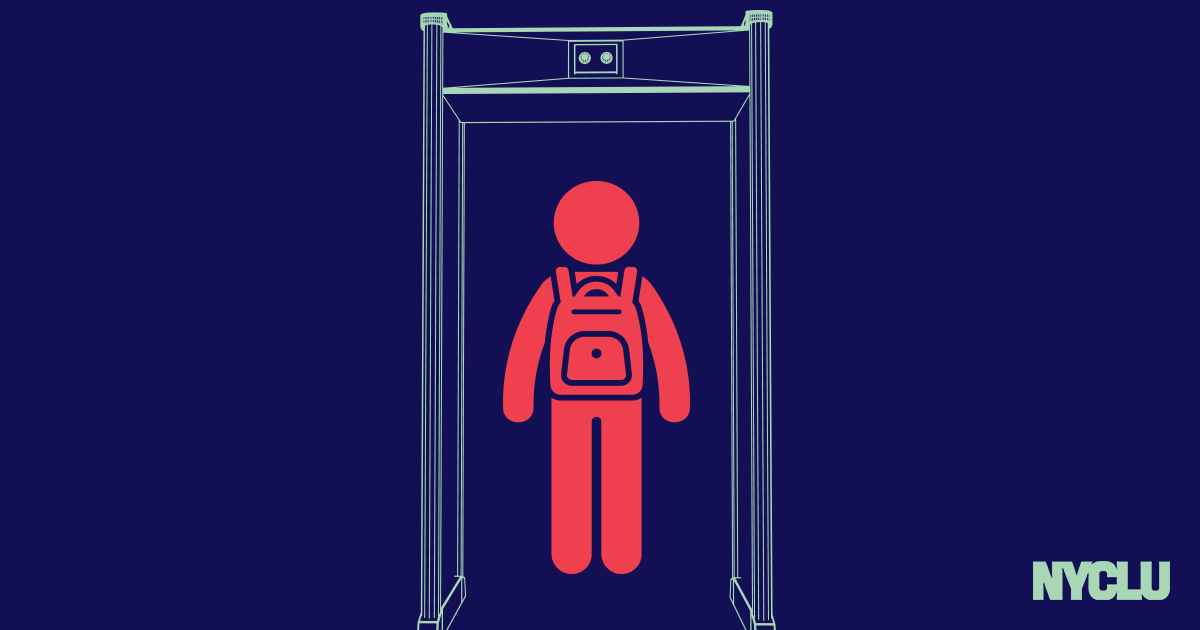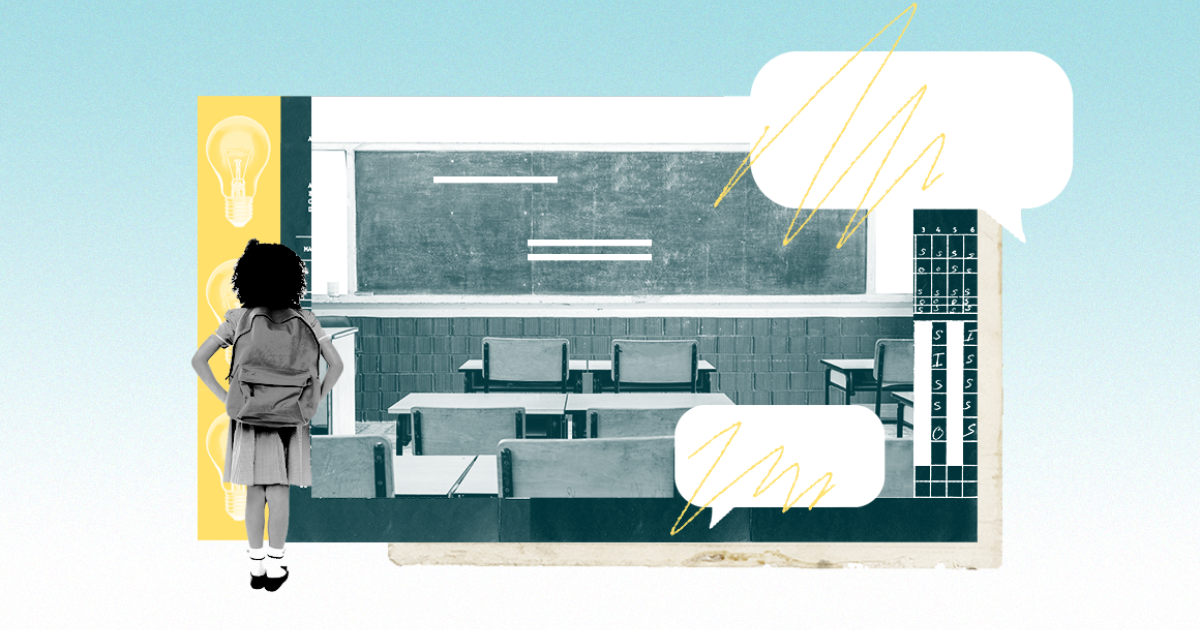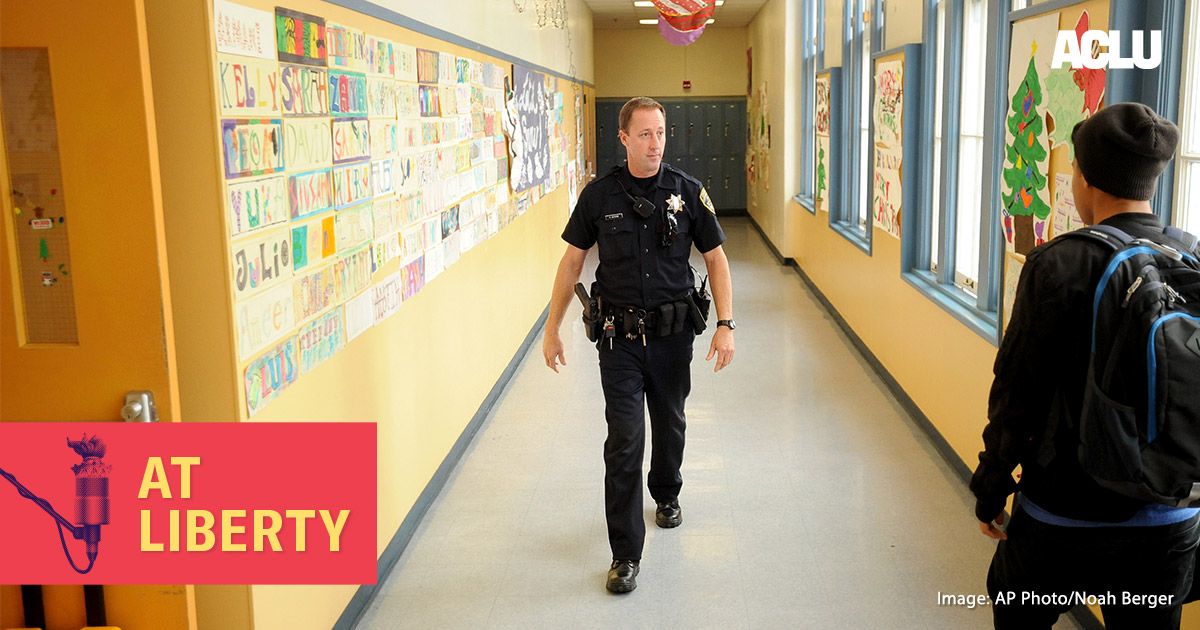Across the country, our affiliates are working to ensure that public school students are treated in an equitable manner and that they have the resources and support they deserve in order to develop to their full academic and social potential. Equity is the means to achieving equality. Ensuring equity in education requires that all students are treated fairly regardless of their language, race or ethnicity, economic profile, gender, sexual identity, or disability status.
Here are four ways our affiliates are stepping up:
Nevada: Challenging the Use of Force in Schools
The ACLU of Nevada is challenging the use of force on a student by a Clark County School District (CCSD) police officer. In February, a group of Las Vegas teenagers were attacked by CCSD police for recording officers performing a stop near their school. A bystander captured video of a school police officer violently throwing a student onto the ground and placing a knee on his back.
The viral video has been shared widely throughout the Las Vegas Valley, leading to protests, a hearing before the Nevada Legislature, and other community actions. The ACLU of Nevada is representing two teenagers who were attacked in the incident, and the affiliate has requested bodycam footage, investigative reports, and other public records. CCSD — the fifth-largest public school district in the country — has fought back against every attempt to seek transparency and accountability. The ACLU has filed suit to obtain these resources.
The state’s public education system is troubled by numerous inequities. In addition to excessive use of force by school police, Nevada students endure issues with disproportionate discipline, chronic underfunding, and more. And it’s not just students grappling with inequities in education: Earlier this year, the affiliate’s legislation to guarantee that full-time substitute teachers received health insurance benefits was vetoed by Nevada’s governor.
From beating back misguided voucher schemes to making sure transgender and gender-diverse students feel welcome and safe in schools, the ACLU of Nevada continues to be called upon to lead on education issues.
New York: Challenging Racially-Biased Student Surveillance
The New York Civil Liberties Union’s Education Policy Center works to ensure public schools and institutions that serve young people in New York empower students, treat them fairly and equally, and create safe environments for them to learn and grow. The Center focuses on ending the school-to-prison pipeline, promoting school integration efforts, ensuring safe and supportive schools for all students, fighting against harmful surveillance technologies, and securing comprehensive and inclusive sexuality education across the state. It is the home of the NYCLU’s Teen Activist Project, a youth organizing program that reaches more than 300 young people in New York City.
A recent analysis found that schools with metal detectors had more Black students and fewer white students than schools not subjected to scanning technology, illustrating an ongoing campaign of racially-biased surveillance. Since 2016, the NYPD has been required to collect information on the usage of metal detectors in public schools, including the locations of the metal detectors and items confiscated. In 2019, NYCLU filed a public information request seeking this data, as well as records of complaints against school safety agents. They followed the denial of that request with a lawsuit, NYCLU v. NYPD. The requests were ultimately denied, but staff researchers used public data from the Student Safety Act quarterly reports to perform the analysis. Their analysis includes information about a new technology for detecting weapons in schools, promoted by Mayor Eric Adams, which has been shown to misidentify Chromebook computers as guns. To keep schools truly safe, NYCLU recommends investing in counselors, healthy buildings, after school supports, and culturally relevant curriculum, rather than increased student surveillance.
Idaho: Challenging Discrimination in School Discipline Policies
The ACLU of Idaho continues to be engaged in education equity work throughout the state, fighting back against bills that would censor classroom discussions around race and gender in the Idaho legislature. They have also developed resources for students and teachers to combat classroom censorship, created know-your-rights materials to support students who want to wear tribal, cultural, and religious clothing at graduation ceremonies, and launched the ACLU of Idaho Freedom School, an annual series of student workshops to educate and mobilize Idaho youth in pushing back against assaults to teaching and learning.
Last August, they released “Proud to be Brown: Punishing Latine Culture in Idaho,” an extensive report detailing the ways in which racism and other forms of discrimination shape school discipline policies in Idaho and the impact those policies have on Latine students. The analysis found multiple vague dress codes and discipline policies that give schools broad discretion to target Latine students as “gang affiliated.” The dress codes and policies result in the disproportionate use of discipline against Latine students, including those who have no known gang affiliation. Ahead of the report, the ACLU of Idaho launched the Latine Education Equity story project to capture and share the personal stories of Latine students and teachers and the issues they face in Idaho classrooms.
Following the Proud to be Brown report, the affiliate filed a Department of Justice complaint against the Nampa, Idaho school district on behalf of Latine students impacted by the district’s discipline policies that target students based on clothing and other items related to their ethnicity and culture.
Pennsylvania: Challenging the Use of Police
For a decade, the ACLU of Pennsylvania has been documenting and challenging the practice of police ticketing students — known in Pennsylvania as “summary citations” — for minor alleged infractions such as disorderly conduct. Under state law, these tickets require students to appear in adult court where, typically, they receive fines and end up with an adult criminal conviction.
This is a highly racialized form of discipline mostly impacting Black students, often Black students with disabilities.This is a statewide problem. In Pittsburgh, during the 2021-22 school year, 89 percent of all summary citations were issued to Black students. Black girls had the highest number issued to them, with nearly 40 percent issued to Black girls, compared to zero citations issued to white girls in the same year. In Erie, elementary school children have received tickets from school police for minor behavior issues — the kind of behavior that you would expect of any child in that age group. Black students were cited 3.6 times the rate of white students, and 40 percent of students cited have disabilities, 60% of whom are also Black.
These patterns parallel discriminatory trends in student arrest rates. For more than a decade, Pennsylvania has been a national leader in student arrest rates, as documented in the ACLU’s ground-breaking report, Student Arrests in Allegheny County: The Need for Transparency and Accountability.
The Pennsylvania affiliate is leading a campaign calling for Pittsburgh Public Schools to declare a moratorium on the practice by disallowing its police from ticketing students. This practice is not unique to Pennsylvania. Last year, the ACLU of Pennsylvania assisted ProPublica and The Chicago Tribune with an award- winning investigation on race and student ticketing by police in Illinois — The Price Kids Pay. On June 28, the board adopted a temporary moratorium on citations while new policies are being considered.



